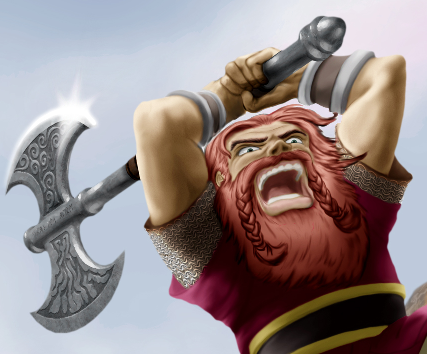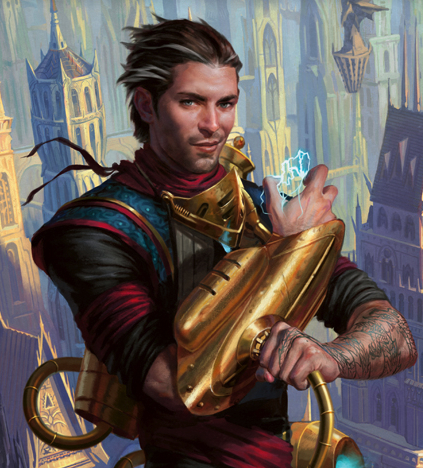I quote out of sequence because of reasons as vague as Book 2's ending.
This all reeks of apologetics. What does it mean to cleanse a god? How can you tell she cleansed him instead of subdued or killed him? How can you compare Korzilla to giant celestial Aang in the same paragraph that you point out she was cut off from Raava at the time (or, to phrase is more correctly: How did the writers think that was valid)? If Vaatu's equal can't kill him, what makes you think someone sitting in a tree can? There's so much in that episode that was unclear, unexplained, or violating established canon that the only way to describe it is shoddily written.
Haaa.... yeah.... most of that stuff I had to get from the wiki (and by extension, commentary on the DVDs which ended up in the wiki). I looked it up after the show ended because I honestly had no idea what was going on, which is a problem in and of itself. I'm still not sure how Korzilla works, or why the creators thought Avatar Pacific Rim was a good route to go for their final duel.
Tenzin did briefly explain that connecting with your Celestial self unlocked some.. sort... of power. It's been a while since I watched it, so I forget the exact wording. The Celestial self is a higher form of the individual, while Raava is a separate entity. Aang couldn't properly harness his Celestial self because of earthly attachments (primarily to Katara), whereas Korra has fewer attachments and is more focused on her duty/purpose.
The whole Book 2 finale and the stuff introduced there is really one of the main reasons I would have liked longer seasons and Vaatu at the very end of the show-- so this could all be fleshed out. Because massive confusion and info-dumping. An entire show could have been made about the showdown with Vaatu.
You mean like prison breaks and trying to escalate the war by involving Republic City and the Fire Nation?
Aang was a good diplomat, but he wasn't able to talk his way out of
every situation. Given that Unalaq had superior manpower, he had no genuine reason to back off.
Korra tried and failed to mediate, then acquired proof (directly through her musclebound nature) that Unalaq had been manipulating the legal system to depose the leaders of the Southern tribe. With Unalaq's troops firmly in control of the South, there were no avenues of mediation left. Korra was hoping to get the world's equivalent of NATO to intervene before the fighting broke out -- which is itself a form of mediation. It's not that unreasonable.
I consider this progress from Book 1 Korra, who would have more than likely tried to jump into hostilities directly, resulting in massive collateral damage.
But let's say there was a similar hostage situation. Yes, when it's a choice between one casualty and unleashing an evil god, then maybe you let the girl die. And I don't think Aang would cave. Aang was a master of finding a third option in these situations.
Well, it's also a
children's show, so I highly doubt "let the girl die" would have been a valid option even if it makes the most logical sense.

And really? Come on, Aang would have totally caved -- he placed immensely high value on his loved ones. Moreso than anything else, really. Remember when that Earth general was trying to kill Katara to trigger the Avatar state? The only reason he couldn't cave quicker is because he couldn't activate it on his own.
Except that Aang coming to terms with his role as the Avatar and what that means was the central conflict of the show. He inched closer every season. As soon as he came out of the block of ice, he was confronted with the ramifications of his irresponsibility, and he slowly worked towards becoming a better Avatar. When did Korra acknowledge and confront her failings as an Avatar?
Well, that's the key reason why Aang overcoming his faults took greater precedence -- the whole show was one big enhanced redemption arc.
Korra's is not a redemption arc. If anything, Korra is more about coming into one's own. As an allusion to those awkward teenager years. She makes mistakes, she's proud, she's bullheaded. But her arc is less about making up for stuff she did, and more about pushing forward and adapting to changing situations as they happen. She's had numerous scenes where she expresses frustration and disappointment with herself for all her shortcomings.
She changes, it just doesn't get called out in the same way as it was with Aang.
Book 1 Korra:- Immediately clashes with authority (metalbending police fight, being flippant with Lin, arguments with Tenzin, etc.)
- Questionable emotional responses (destroying those air panel things, being catty with Asami, joining Tarrlok's force because of pressure, yelling, etc.)
- Pays no attention to spirituality at all (minus Aang visions, which were largely against her will)
- Picks fights with everyone (Mako, random citizens, the list goes on)
- Limited to no tact while dealing with tricky diplomatic situations (revealing Amon, busting Hiroshi)
Book 2, Transitional Korra:- Clashes with authority at the onset (Tenzin), but recognizes her mistake and reconciles, fostering healthy relationships.
- Snaps at everyone at first due to frustration from feeling dependent, then grows calmer and more controlled by season's end.
- Shows more openness for meditation and spirituality (stuff with Jinora, and the conclusion of the fight with Vaatu had her bow and say "be at peace" rather than "BOO YEAH IN YOUR FACE" a la Book 1 Korra.)
- Forms deeper connection with Avatar role (Raava stuff), and finds comfort and independence in herself.
- Still shit at diplomacy, but less impetuous than she was in Book 1 (Korra going off on her own to fight Amon in Book 1 vs. getting aid from groups and world powers in Book 2).
Book 3 Korra:- Healthy and respectful relationship with Tenzin, shows respect for the Earth Queen even though she's an ass. She clashes with Raiko because he's deliberately trying to make her look bad and fails to acknowledge that vines are a minor improvement to being destroyed by Vaatu.
- Only snapping at people she's directly at odds with -- not just because she's angry. She snaps at Lin (you may not be at that point) but has good reason to.
- Spirituality hasn't really been a focus in this Book so much, so hard to say about that -- but she's comfortable walking with spirits.
- Still confident in self and pretty centered, even if things don't always go her way.
- Still shit at diplomacy, but thinking things through even more than in previous seasons -- quickly suspected the Earth Queen's true intentions, and didn't make a spectacle by calling her out in public. Waited for further developments.
So, she
is changing and growing, at least in my book. But she's not as reflective as Aang is, so she's not really stopping to go "wow, I am a bad Avatar, let me think about how to change that." She's more active, and reacts to situations as they happen.
Toph may have actually been a bad comparison -- Zuko may have been more accurate. He's emotional, moody, selfish, quick to fight, and has strained relationships with everyone. He's also bad at diplomacy and intrigue, given how easily Azula can manipulate him. Zuko and Korra are both wangsty teenagers who have poor control of their emotions. They bulldoze their way into adulthood.
Obviously, Zuko made amends with Iroh and changed -- but that was also something that happened near the end game of Avatar. In the mid-portion, which Korra's in now, he was still kind of an insufferable jerk. And outright betrayed iroh, so he was at his most jerkilicious. I only watched the series after it was all done, so I don't know what fan opinion was of Zuko at this point, but I know he's a big fan favorite in spite of his angst, while Korra is still often reviled. Which I think is unfair.
Korra has no central antagonist like Ozai was to Zuko and Aang (both with obviously different conflicts). She has no one to focus her anger on, so it kind of spills out all over the place, and there's no clear path to "fixing herself." You can chart Aang and Zuko's developments easily, but Korra is harder to track because there's no singular focus for her teenage wangst -- beyond trying to get through various crises as best she can.
But, since we have more show to go, and since I think she's changed quite a bit already, I think there's still more room for her to grow.



















